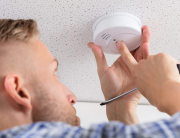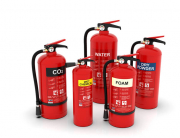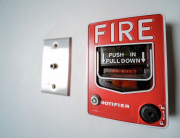Fire safety is a paramount concern for individuals and households, as fires can have devastating consequences on lives and property. Understanding fire safety tips and implementing preventive measures are crucial steps in reducing the risk of fires and ensuring the safety of residents.
Understanding Fire Safety Tips
In the UK, fires pose a significant risk, with statistics highlighting the prevalence and impact of fire incidents. According to the Home Office, there were approximately 182,825 fire incidents in the UK in the year ending March 2023. These incidents resulted in 253 fire-related fatalities and 6,157 non-fatal casualties. The statistics underscore the urgent need for effective fire safety measures to prevent such tragedies.
Most fires are preventable through proper fire safety practices and awareness. In the UK, fire safety regulations are stringent, aiming to protect lives and property. The Regulatory Reform (Fire Safety) Order 2005 sets out the legal requirements for fire safety in non-domestic premises, emphasising the need for risk assessments, fire prevention measures, and emergency planning. Adhering to these regulations and implementing fire safety tips is essential for all residents, whether in homes or workplaces.
Top 10 Fire Safety Tips
Implementing effective fire safety measures can significantly reduce the risk of fires and ensure the safety of individuals and their loved ones. Here are the top 10 fire safety tips to help you stay prepared and secure in the event of a fire emergency.
1. Install Smoke Alarms
Smoke alarms are the first line of defence against fires, providing an early warning system that can save lives. It is recommended to install smoke alarms on every level of your home, including inside and outside bedrooms.
These alarms should be tested monthly to ensure they are functioning correctly, and the batteries should be replaced at least once a year or when the low battery chirp sounds. Properly installed and maintained smoke alarms can increase the chances of surviving a fire by up to 50%.
2. Keep Flammable Materials Away from Heat Sources
Flammable materials, such as curtains, towels, and bedding, should be kept at least three feet away from heat sources like stoves, ovens, and space heaters. This simple step can prevent fires from starting and spreading quickly.
It is also essential to avoid storing flammable liquids, such as gasoline, paint thinners, and lighter fluid, near any heat sources or open flames.
3. Create an Escape Plan
Developing a fire escape plan with multiple escape routes from each room is crucial. Practise the plan regularly with all family members, including children and the elderly, to ensure everyone knows what to do in case of a fire emergency.
Check your house and designate a meeting point outside the home where everyone can gather after escaping. This plan can help ensure a safe and orderly evacuation, increasing the chances of everyone getting out safely.
4. Use Electrical Appliances Safely
Overloading electrical outlets and leaving electrical appliances unattended can lead to electrical fires. Avoid using frayed or damaged electrical cords, and keep them away from heat sources. It is also essential to unplug appliances when not in use, especially overnight, to minimise the risk of fires.
5. Practice Kitchen Safety
Cooking is a leading cause of home fires, so it is crucial to stay in the kitchen while cooking, especially when frying, grilling, or broiling food. Never leave cooking unattended, and keep a fire extinguisher nearby in case of a fire. Additionally, ensure that flammable items, such as towels and oven mitts, are kept away from the stove and other heat sources.
6. Ensure Proper Ventilation
Proper ventilation is essential for fire safety, especially in areas with gas appliances or fireplaces. Ensure that your home has adequate ventilation to prevent the buildup of carbon monoxide, which can be deadly. Consider installing carbon monoxide alarms to detect this odourless, colourless gas.
7. Candle Light and Lighters Safety
Candles and lighters can be fire hazards if not used properly. Never leave candles unattended, and keep them away from flammable materials. Ensure that candles are placed on stable, non-flammable surfaces and extinguished before going to bed. Store matches and lighters out of reach of children to prevent accidental fires.
8. Carbon Monoxide Alarms
In addition to smoke alarms, it is recommended to install carbon monoxide alarms in your home. Carbon monoxide is an odourless, colourless gas that can be deadly if inhaled. Carbon monoxide alarms can detect this gas and alert you to the presence of this dangerous substance, allowing you to take immediate action.
9. Consider Fire Sprinklers
If feasible, consider installing fire sprinklers in your home. Sprinklers can quickly suppress fires and provide an additional layer of protection, reducing the risk of fire-related injuries and property damage.
10. Educate Your Family and Stay Informed
Educate your family, especially children, on fire safety. Teach them about the dangers of fire, how to prevent fires, and what to do in case of a fire emergency. Additionally, stay informed about the latest fire safety guidelines and regulations, and attend fire safety training sessions to ensure you are up-to-date on the best practices.
How Can We Help?
Fire safety is a responsibility that cannot be overstated. By implementing the top 10 fire safety tips, you take proactive steps towards safeguarding your home and loved ones from the threat of fire. Remember, fire safety is not just about prevention but also about preparedness. Visit here for more fire safety tips in various formats. In addition, access Government approved fire safety leaflets from Gov.uk.






